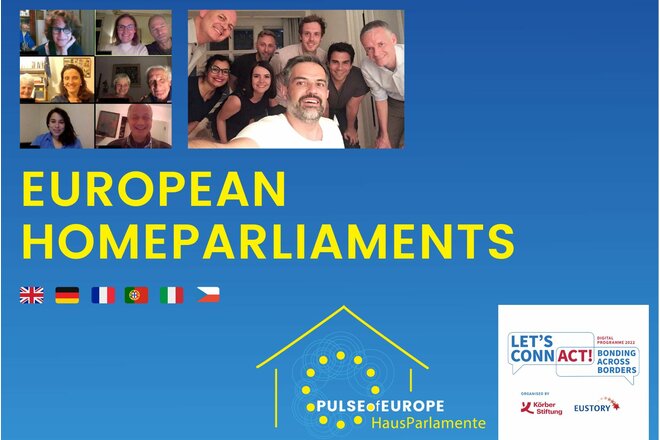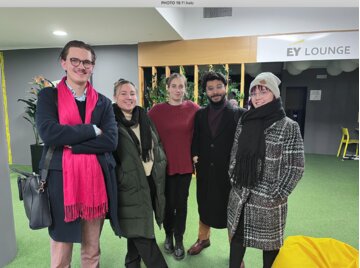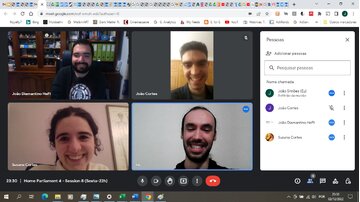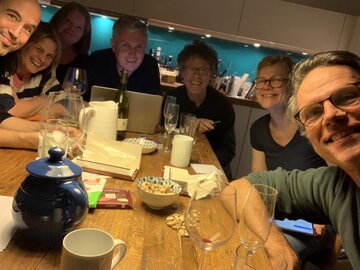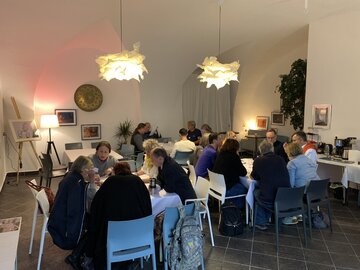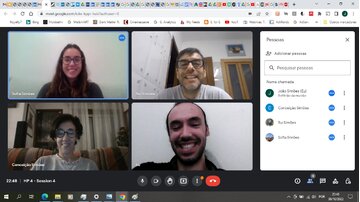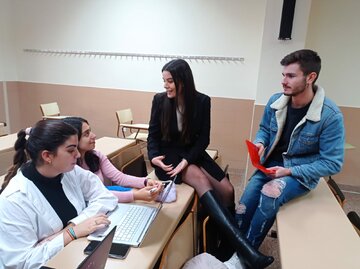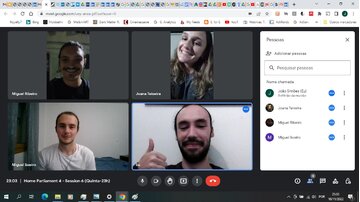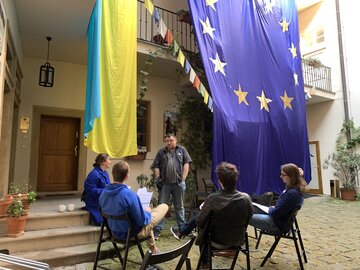bakgrunn
Since Russia's war on Ukraine, Europe has been experiencing a turning point - both within and outside the EU. In this context, not only politics, but also factors in the field of culture, education, identity significantly determine the direction in which Europe will develop in the future. What kind of events we honor together in Europe during the national holidays, what narratives and historic facts are taught to young people in school and whether one is part of the EU as a political community or not has an influence on the shape of Europe in the future. In this round of European HomeParliaments, we therefore take a look at three questions that can bring Europe closer together, both culturally and politically.
Delspørsmål
1. Should there be a joint European Public Holiday to commemorate Europe’s shared history and values?
Bakgrunn: Public holidays play an important role in the culture of commemoration and shape our national identity as well as cultural self-image. They remind us of key moments in history (e.g., holidays marking the end of the war), honor the role of social groups (e.g., International Labour Day) or have religious connotations (e.g., Easter). Holidays are an opportunity to be with family and friends, but also to feel a sense of community and foster social cohesion. Until today, there is no holiday yet that honors the European peace project or common European history. Should there be a joint European Public Holiday to commemorate Europe’s shared history and values? Let’s discuss.
Per
Public holidays give regularity and commitment to cultures of commemoration
It can build European identities and induce feelings of belonging and togetherness
It would give people an additional occasion to visit friends and family, also across borders
Kontra
A European-wide holiday blurs regional differences and weakens national identities in the long run
There is no occasion or historical event that truly unites the many states of Europe
A European Public Holiday would only have a representative character and wouldn't lead to a feeling of belonging from the bottom-up.
2. Should history education in Europe’s schools provide more common European content and go beyond national narratives?
Bakgrunn: The teaching of history in school plays a central role in how we perceive the world. It shapes our way of understanding the past, present, and future. Currently, the content and narratives that are taught in history classes in Europe differ greatly from one country to another. In some cases, history even seems to be used as an instrument to divide us instead of bringing us together. We want to discuss whether a more commonly agreed curriculum in history classes which focuses more on the European perspective could strengthen European unity and cohesion. Should the teaching of history in Europe’s schools provide more common European content and go beyond national narratives? Let us talk about it.
Per
National history is always also European history. Both must be taught together.
Agreeing on a certain pan-European consensus when it comes to teaching history can create a sense of cohesion and international understanding.
A deeper understanding of the multi-faceted character of historical interpretations could make young people less susceptible to obscure interpretations of the past that are used as a weapon, e.g., in political debates.
Kontra
Pupils might be confused and unable to develop a national identity if history is addressed from a more European or global perspective.
Shared narratives must emerge organically and should not be artificially constructed and mediated.
School policy lies in the responsibility of the nation states of Europe and should neither be influenced nor controlled from above the national level.
3. Should EU enlargement be accelerated for countries with candidate status?
Bakgrunn: Politically, Europe is a continent divided into at least two parts: There is a Europe outside and inside the EU. Whether one belongs to this union of European states plays a central role for the economic, social and political development of a country, but also how it is perceived by others. Europe’s expansion has been a topic of discussion for years. States of the Western Balkans, Ukraine, Georgia or Moldova are candidates right now and on their way towards the EU. However, since the war in Ukraine, the discussion on EU expansion has reached a new level. Besides economic and social benefits, EU membership plays an important role in national security as well. EU membership not only offers economic or social benefits, it also plays an important role in terms of national security. We therefore want to discuss: Should EU enlargement be accelerated for countries with candidate status? Consider in your discussion proposals such as the need to either soften membership requirements or to establish a membership light version to get new countries in the Union quickly without giving full membership rights yet.
Per
Speeding up the EU membership process helps to protect Europe's democracies against the influence of strong autocratic states
Membership opens up new economic and cultural opportunities for new and old member states alike
A positive decision would recognize efforts taken and progress made by candidate countries in the past years (e.g., in the so-called “Berlin Process”)
Kontra
Membership criteria and requirements should be respected and not softened for political reasons
Rushing enlargement can lead to destabilization of the entire EU and its working mechanisms. Bigger doesn’t mean better.
The more diverse EU member countries are, the more difficult EU politics will become
Tillegg fra møtene
Populist and anti-EU narratives can be better dealt with once a country is a Member State (e.g. via Erasmus+ programmes implemented by NGOs teaching critical media literacy)
There are no clear mechanisms on how to deal with countries that disrespect European values (e.g. Hungary) so before inviting countries that could potentially disrespect laws, first better tools to handle infringements should be developed
Kilder
- www.thenewfederalist.eu/Europe-Day-must-be-made-a-public-holiday?lang=fr
- www.euractiv.com/section/future-eu/news/europe-day-initiative-calls-for-9-may-to-become-public-holiday/
- www.coe.int/en/web/history-teaching
- www.euractiv.com/section/politics/news/history-at-heart-teaching-europes-past-can-protect-its-future/
- european-union.europa.eu/principles-countries-history/joining-eu_en
- neighbourhood-enlargement.ec.europa.eu/enlargement-policy/conditions-membership_en
- ec.europa.eu/environment/enlarg/candidates.htm
Evaluering
Europe On The Next Level: Do We Need Deeper Cultural And Political Integration?
samtykker 42
Avslag 1
avholdende 8
1. Should there be a joint European Public Holiday to commemorate Europe’s shared history and values?
Avstemningsresultatene er satt sammen av 373 innmeldte resultater.
Trend (median)
bety
2. Should history education in Europe’s schools provide more common European content and go beyond national narratives?
Avstemningsresultatene er satt sammen av 359 innmeldte resultater.
Trend (median)
bety
3. Should EU enlargement be accelerated for countries with candidate status?
Avstemningsresultatene er satt sammen av 356 innmeldte resultater.
Trend (median)
bety
